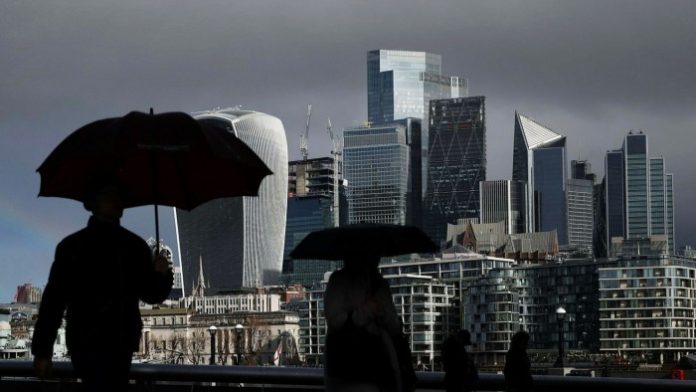Unlock the Editor’s Digest for free
Roula Khalaf, Editor of the FT, selects her favourite stories in this weekly newsletter.
Chancellor Rachel Reeves has admitted she has a “huge” task to turn around the economy, after growth flatlined in the third quarter and business groups warned of a tough start to 2025.
Mel Stride, shadow chancellor, said the “warning lights are flashing” after the Office for National Statistics said GDP did not grow in the three months to September, down from its initial estimate of a 0.1 per cent expansion.
This reflected flat output in the dominant services sector in the aftermath of Labour’s July election victory, while production output fell 0.4 per cent, offsetting a 0.7 per cent increase in the construction sector.
Business groups are warning that poor growth looks set to stretch into the new year, and Reeves admitted: “The challenge we face to fix our economy and properly fund our public finances after 15 years of neglect is huge.”
The CBI lobby group published survey findings on Monday showing a majority of private sector firms expected activity to fall in the three months to March, and were “looking to the government to boost confidence and to give them a reason to invest”.
The British Retail Consortium said its latest polling showed there had been a big drop in the public’s spending intentions, which left retailers facing “a challenging year . . . buffeted by low consumer demand and £7bn of new costs from the Budget set to hit the industry in 2025”.
If growth undershoots forecasts made in the Budget, it raises the prospect that the chancellor may need to deliver spending cuts or higher taxes next year to ensure she continues to meet her borrowing rules.
Paul Johnson, head of the Institute for Fiscal Studies, warned that the chancellor may need to “come back for money” in her Budget in autumn 2025, in what would be a serious setback for Reeves’ credibility.
The government has put boosting growth at the heart of its agenda but now faces the threat that the economy could have contracted in the final quarter of the year.
Stride said Reeves’ “disastrous Budget” — which included a £25bn rise in employers’ national insurance contributions — should be revisited. “Every moment of delay is further damaging business confidence, output and employment,” he said.
The government’s preferred measures of living standards give a similarly bleak picture. The ONS said on Monday that real GDP per capita fell by 0.2 per cent on the quarter and on the year, while early estimates showed households’ disposable income had stagnated during the second quarter, following growth of 1.4 per cent in the three months to June.
Data published earlier this month showed GDP shrank 0.1 per cent in October, the second straight monthly contraction.
On Monday, the ONS also revised its estimate for second-quarter growth down from 0.5 per cent to 0.4 per cent, indicating the economy began slowing earlier than previously thought.
Recent figures have pointed to a softening in the jobs market, stubborn inflation and falling business confidence.
The Bank of England last week predicted zero expansion in the fourth quarter, down from its previous forecast of 0.3 per cent growth.
Economists said the details of Monday’s downwardly revised GDP data contained some bright spots, with consumer spending growing at a healthy pace, business investment picking up and households no longer piling money into savings.
Paul Dales, at the consultancy Capital Economics, said the downward revision in the third quarter was “mainly due to external influences rather than the domestic economy”, including a bigger drag from net trade.
But the overall picture was that growth had “ground to a halt”, he said, due to “the lingering drag from higher interest rates, weaker overseas demand and some concerns over the policies in the Budget”.




